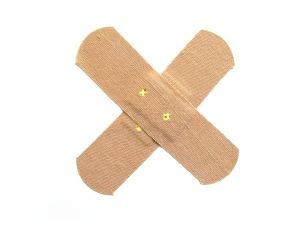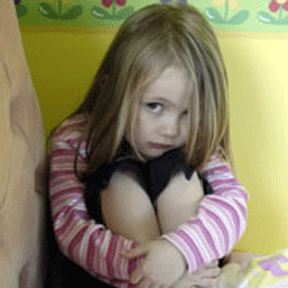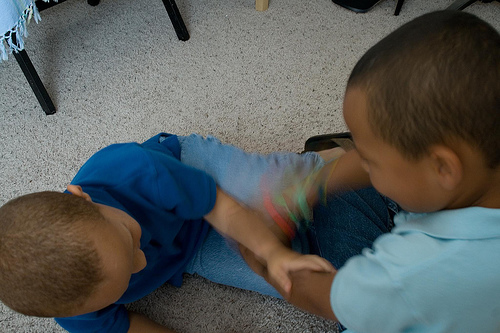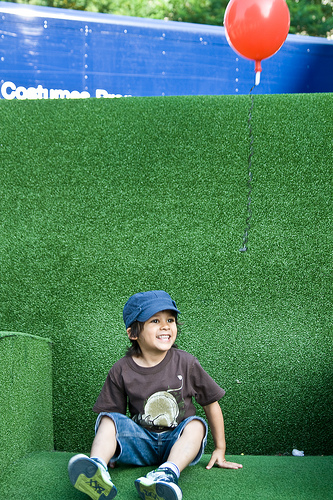 Let’s face it. One of the things we parents have to deal with is our kids getting sick or injured. It’s a part of growing up, especially if you have accident-prone kids like I do.
Let’s face it. One of the things we parents have to deal with is our kids getting sick or injured. It’s a part of growing up, especially if you have accident-prone kids like I do.
My four-year-old Ollie gets a bump/wound/scratch almost daily, and a few months ago had a bad accident in our garden where he cut his head open and was rushed to the ER. While playing with his big sister, he fell through the fence constructed by our handyman and nearly fell into our pool (which had just been cleaned out and empty). He was grabbed just in time by the handyman, so didn’t fall into the pool but slammed his head on the tile. My husband saw the whole thing and was going to kill the handyman for his shoddy work (it wasn’t nailed in properly), but he did save Ollie’s life…so it was a hard one. Luckily Ollie didn’t need stitches and aside from my husband being covered in blood ala Carrie, it turned out to be a minor injury. It could have been much much worse though, so we are grateful and have since taken extra precautions to make sure that all areas in our home were safe. Ollie was feeing a bit traumatized for the next few days (as were all of us), but I think he’s recovered now.
Here are some great tips from After The Injury, a really useful website for parents who have to deal with their child’s injuries. Whether your child’s injury is big or small, it helps to remember these things so that your child recovers faster.
While doctors know that injury prevention is the best “medicine,” the sad truth is that kids still do get hurt- lots of them- even with the most vigilant parents. In fact, 9.2 million children are treated in an emergency room for an injury each year, making it equally important for parents to know how to handle what happens after the injury.
1. Let your child know that he or she is safe. In the first days and weeks following an injury many children fear that something bad might happen to them again. Learn more about helping your child with new fears or worries.
2. Allow children to talk about their feelings and worries, if they want to. Let your child know that it’s ok to feel a little upset. The circumstances of an injury can be frightening, and it’s not always easy to know how to talk with your child about it. Here are some things that other parents have found helpful for talking with their child.
3. Go back to normal routines. It is important to help your child get plenty of sleep, eat regular meals, keep up with schoolwork, and spend time with friends. Here are some options to consider if the injury gets in the way of things s/he used to do.
4. Increase time with family and friends. Children who get support from family and friends seem to do better in recovering after upsetting events. Try reading together, playing games, or watching movies together. Listen to what some parents had to say about how to help their children remain connected after an injury.
5. Take time to deal with your own feelings. In addition to all of the things you do to help your child, it’s important to remember to take good care of yourself. Learn more about your own reactions and get tips for taking care of yourself.
6. Keep in mind people in the same family can react in different ways. Your child’s feelings and worries about the injury might be different from yours. It’s important to monitor how your child is doing and when reactions might signal trouble. Learn how to gauge your child’s emotional recovery and identify any reactions that might need special attention.
Visit After the Injury to read full tip sheets, learn more about child injury and pain care, take a quiz to rate your child’s reactions to injury, and create a personalized care plan to help parents help their child recover from injury.
Photo via Ramberg Media
Originally posted on July 13, 2011 @ 8:02 am









